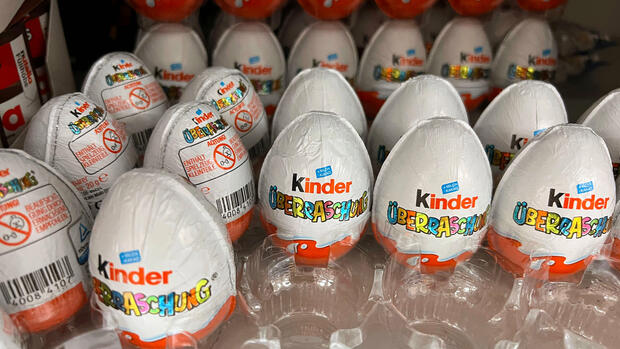Minister Cem Özdemir wants to restrict advertising for unhealthy food.
(Photo: IMAGO/MiS)
Two things are indisputable: sweets are the most advertised foods in Germany. And every sixth child in this country is overweight. But even on the question of whether one is the cause of the other, opinions differ widely.
Federal Food Minister Cem Özdemir has a clear stance on this: The Greens politician plans to protect children from obesity by banning advertising for unhealthy food from TV, radio, the Internet and newspapers aimed at them. His suggestion is to be welcomed. But his approach does more damage than it helps.
>> Read here: Ban on advertising natural yoghurt, muesli and the chocolate Easter bunny – Özdemir’s plans are met with criticism
The industry fears that the protection of children publicly propagated by the minister turns out to be a complete ban on advertising for at least 70 percent of food on closer inspection of the draft law. In the future, it will no longer even be possible to advertise a natural yoghurt with 3.5 percent fat during prime time – because it is above the limit values recommended by the World Health Organization (WHO), on which the project is based. This has nothing to do with advertising for children.
Instead, there is a risk of over-regulation of the already ailing advertising industry. Media threaten to lose billions, because food manufacturers are among the most important advertisers. Özdemir’s plan fuels the suspicion that the Greens want to impose their nutritional agenda on the citizens. In the WHO list there are strict limits for milk or juices. However, they may also be advertised in the future with reference to their nutrients.
Health experts also classify some plant-based meat alternatives as unhealthy. However, there is not a word in the draft law about advertising restrictions in this area, which is being promoted by many Green Party politicians. Instead, the regulation affects many companies. Newcomers to the food market with innovative products will have a harder time promoting them. The long-established can rest on their market share.
Even a ban on tobacco advertising had little effect
A comparison to the tobacco industry: When the Bundestag banned cigarette advertising from TV screens in the 1970s, this did not reduce the number of smokers, but only strengthened the market leaders. Only smoking bans and higher prices had an effect.
In other words, the prices for unhealthy products have to go up. For example, the sugar tax in England has led to lemonade manufacturers reducing the sugar content. Of course, the industry will not like additional taxes either. But the minister would achieve his real goal – to protect children without restricting entire industries.
More: Advertising ban for 70 percent of all food – who particularly hit Özdemir’s initiative
